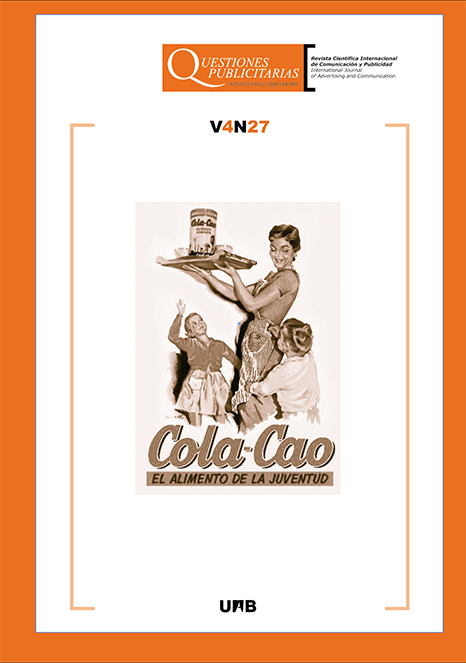Catalan and Madrid universities in social media
Article Sidebar

Main Article Content
Marc Perez-Bonaventura
Universitat Politècnica de Catalunya, Departament d’organització d’empreses (UPC)
Salomé Tárrega
Facultat de Ciències de la Salut de Manresa, Universitat de Vic-Universitat Central de Catalunya (UVIc-UCC)
Àrea de Metodologia de les Ciències del Comportament. Estudis de Psicologia i Ciències de l'Educació. Universitat Oberta de Catalunya (UOC)
Jordi Vilajosana
Universitat Politècnica de Catalunya, Departament d’organització d’empreses (UPC)
In nowadays’ competitive environment, marketing and advertising are essential for higher education institutions. When students have to choose their future university, universities strive to be in the student’s mind. Social networks are the best option for universities to reach students because they make massive use of them. This article studies Catalan and Madrid universities behavior in social media in order to attract students and be choosed as their future university. The aim is to discover which of both autonomous communities have better results in social networks.
Article Details
How to Cite
Perez-Bonaventura, Marc et al. “Catalan and Madrid universities in social media”. Questiones Publicitarias, vol.VOL 4, no. 27, pp. 11-20, doi:10.5565/rev/qp.349.
Rights
Copyright
Authors who publish with this journal agree to the following terms:- Authors retain copyright.
- The texts published in this journal are – unless indicated otherwise – covered by the Creative Commons Spain Attribution 4.0 licence. You may copy, distribute, transmit and adapt the work, provided you attribute it (authorship, journal name, publisher) in the manner specified by the author(s) or licensor(s). The full text of the licence can be consulted here: https://creativecommons.org/licenses/by/4.0/.
- Authors are able to enter into separate, additional contractual arrangements for the non-exclusive distribution of the journal's published version of the work (e.g., post it to an institutional repository or publish it in a book), with an acknowledgement of its initial publication in this journal.
- Authors are permitted and encouraged to post their work online (e.g., in institutional repositories or on their website) prior to and during the submission process, as it can lead to productive exchanges, as well as earlier and greater citation of published work (See The Effect of Open Access).